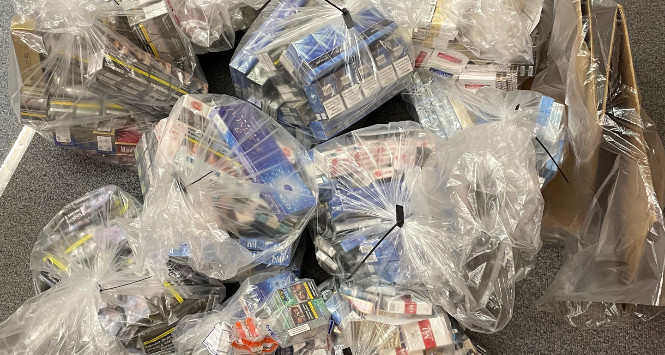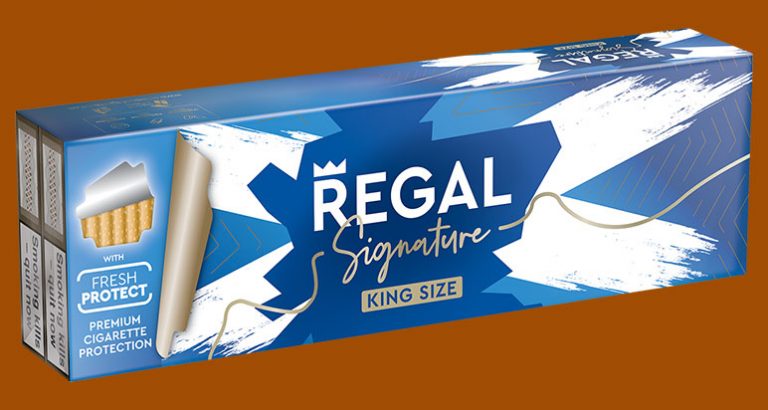The tobacco category rarely stands still, with the latest piece of legislation set to impact on local retailers being ‘Track & Trace’. SLR caught up with Imperial Brands’ Operations & Project Manager Stuart Ramsay to find out what the new legislation will mean in practice.
Factfile
Stuart Ramsay is Operations & Project Manager for Imperial Brands in the UK & Ireland and is currently leading the company’s preparations for the impending Track & Trace regulations. He has worked for Imperial for almost eight years in supply chain related functions and has experience in both tobacco and Next Generation Products.
So, the next challenge for the tobacco category is track and trace. What is it?
The revised European Tobacco Products Directive (EUTPDII) introduced secondary legislation on Track and Trace (T&T) and Security Features (SF) for all tobacco products. The legislation requires all packs to be marked with a Unique Identifier (UI) for tracking purposes, along with five Security Features designed to combat illicit products entering the legal tobacco supply chain. This will further bolster existing anti-illicit trade efforts.
When will it be implemented in the UK?
T&T and SF applies to all tobacco products but the timetable for implementation differs for different product types.
Factory Made Cigarette (FMC), Roll Your Own (RYO), and Make Your Own (MYO) products must be compliant from 20 May 2019. However, it’s important to note that non-compliant FMC and RYO products already on the market before this date can remain on sale until 20 May 2020.
Other tobacco products (like cigars and pipe tobacco) must be compliant by May 2024 and products made before this date can remain in the retail trade until May 2026. Vape products are not covered by the legislation and are therefore not subject to T&T or SF requirements.
What does the Government hope to achieve by introducing track and trace?
The illicit tobacco trade continues to represent a significant threat to industry, retailers and local communities, both in Scotland and the wider UK. The Government hopes this new system will help identify illicit tobacco products in the supply chain more easily and help combat the growing trade in illegal tobacco across the UK.
What will it mean for retailers?
All retailers who currently receive tobacco deliveries or collect via cash and carrys will need to have a facility ID setup in order to legally receive tobacco products. This will require retailers to apply and register with the relevant ID Issuer.
For the larger retailers who move tobacco products through their supply chains they will need to scan products in and out of all their facilities and may have to invest in additional equipment and upgrade their systems to integrate these new processes. The last scan of a product is into the first retail outlet where it will ultimately be sold to a consumer, no scanning is required when issuing products at the point of sale.
What do retailers need to do in order to comply with the new legislation, and by which deadline?
Every tobacco retailer will need to register and apply for a facility ID to be able to receive tobacco orders from their suppliers or to collect stock from cash and carry depots. HMRC will appoint an independent ‘ID Issuer’ and all operators, facilities and machines involved in the system will need to obtain an ID to comply with the new requirements.
It is the responsibility of independent retailers, wholesalers, and cash and carrys to ensure that they comply with the regulations by the deadlines stated. We will continue to work with all our customers to help them understand and implement the new requirements.
Our advice to all parties in the tobacco supply chain is to review the requirements of the system and to begin preparations for implementation as early as possible. As with the implementation of standardised packaging in 2017, we are committed to supporting the trade during this time of change and encourage our customers to contact their Imperial Tobacco representative if they require more information.
How can retailers be sure that all tobacco they buy after the deadline is legal and compliant?
The UI, along with some of the Security Features, will be visible on every pack making it easy for retailers to identify T&T compliant stock.
As FMC and RYO products manufactured before the 20 May 2019 deadline can remain on sale until 20 May 2020, retailers are likely to see a mixture of T&T compliant and non-compliant stock in the market for a while. A similar situation occurred during the transition between TPD I and TPD II compliant stock (‘plain packaging’) in 2016/2017, so retailers should not be concerned by this, although we do recommend they concentrate on selling through older, T&T non-compliant stock during this transition period.
Is track and trace likely to result in extra costs to retailers, either directly or indirectly?
Retailers will be required to register and apply for a facility ID through the ID issuer. HMRC is leading the implementation of T&T and SF in the UK but has not yet confirmed whether there will be a cost incurred for registration and/or application of a facility ID.
What effect do you think the Directive will have on tobacco sales?
We do not believe the implementation of T&T will have any discernible impact on tobacco sales in independents, wholesalers or supermarkets. However, due to the traceable element of the regulations, the system will help identify illicit tobacco products in the supply chain more easily and help government, tobacco manufacturers and law enforcement bodies combat the growing trade in illegal tobacco.
Will the legislation be overturned after Brexit?
The legislation has now become UK law. Irrespective of the UK leaving the EU, the UK government appears to remain committed to introducing a global Track and Trace system for tobacco products under the World Health Organisation Framework Convention on Tobacco Control Illicit Trade Protocol.
How is this going to be policed? What will the penalties be for retailers and wholesalers who do not comply with the new regulations in some way or other?
HMRC is leading the implementation of T&T and SF in the UK and sanctions will be issued for non-compliance. Final confirmation around enforcement has yet to be issued by HMRC, but traditional penalties for non-compliance include imprisonment, a fine, or both.





